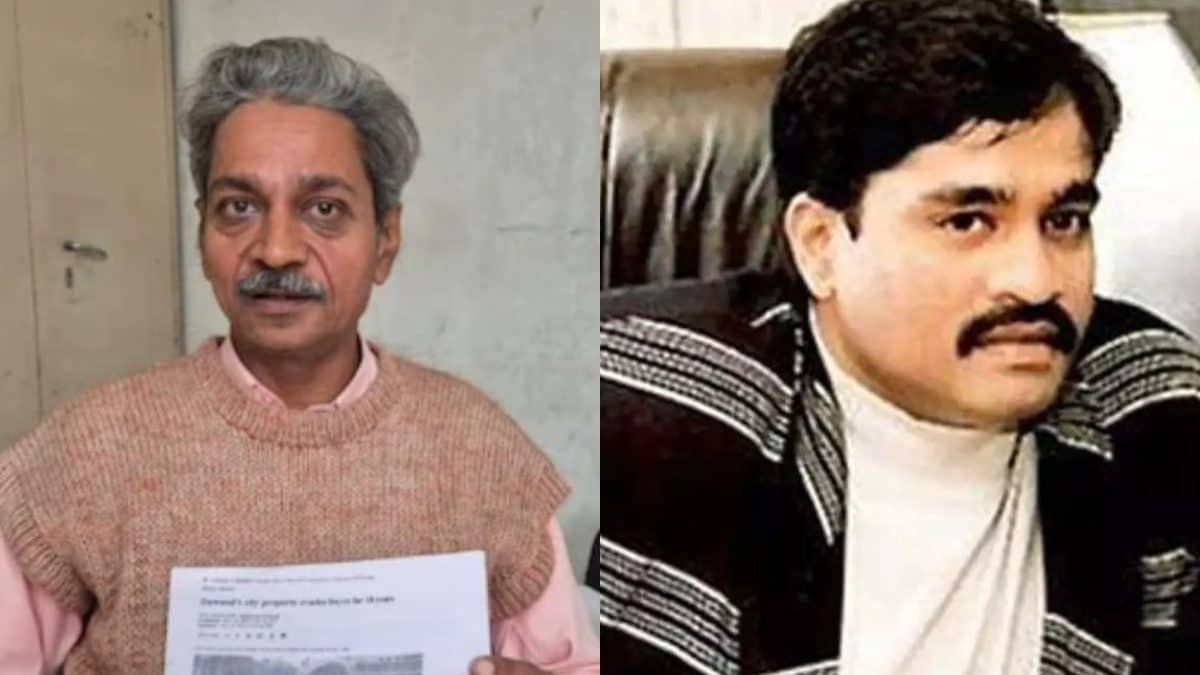 |
|
The saga of Hemant Jain, a 57-year-old resident of Uttar Pradesh, highlights the complexities and protracted nature of legal battles, particularly when intertwined with the notorious underworld figure, Dawood Ibrahim. Jain's 23-year struggle to gain possession of a property he legally purchased in 2001 underscores the systemic challenges and bureaucratic hurdles faced by ordinary citizens navigating the Indian legal system. His purchase, initially made with the hope of defying the shadow of the underworld, quickly transformed into a relentless battle against seemingly insurmountable odds, illustrating a frustrating reality for many who find themselves caught in the gears of a slow-moving and often opaque legal machine. The sheer length of his ordeal speaks volumes about the systemic inefficiencies and the challenges individuals face when dealing with property ownership and transfer within a system grappling with legacy issues and complex bureaucratic procedures. Jain's story is not merely a legal case; it's a testament to his perseverance and determination in the face of considerable adversity.
Jain's journey began in 2001, when he purchased a 144-square-foot shop in Mumbai's Nagpada area at an income tax department auction. The initial cost of Rs 2 lakh seemed a reasonable investment, yet what followed was a protracted legal nightmare. The immediate obstacle was the claim of a ban on transferring Centre-owned properties, a claim Jain later discovered to be false. This initial deception set the stage for years of bureaucratic hurdles. The missing files of the Income Tax Department, a common impediment cited in many legal battles, further exacerbated the problem, effectively stalling the transfer of ownership. His efforts to expedite the process through numerous letters to the Prime Minister's Office – spanning the tenures of Atal Bihari Vajpayee, Manmohan Singh, and Narendra Modi – proved futile, highlighting the challenges of navigating bureaucratic channels, even at the highest levels of government. The delays and misinformation illustrate a systemic problem, affecting not just Jain's case, but potentially countless others involved in similar legal struggles.
By 2017, Jain's ordeal reached a new level of complexity. The property file vanished entirely, leading to demands for significantly increased stamp duty, calculated based on the exponentially higher current market value of Rs 23 lakh. The added burden of registration fees and penalties pushed Jain to the brink of financial ruin. The fact that the property was purchased at an auction should have negated the recalculation of stamp duty based on current market value; however, Jain's pleas were ignored. Despite these overwhelming challenges, he persevered, paying Rs 1.5 lakh in stamp duty and penalties. Finally, on December 19th of the previous year, the property was registered in his name. This victory, however, is far from complete. The shop remains under the illegal occupation of alleged associates of Dawood Ibrahim, who have converted the space into a lathe machine workshop. This final hurdle underscores the inherent challenges in enforcing legal ownership, particularly when dealing with individuals connected to powerful criminal networks. The authorities, according to Jain, suggested that he simply abandon his claim and accept the loss, a suggestion reflecting the inherent power imbalance and the complex realities of enforcing justice in such cases.
Jain's story is a poignant illustration of the struggles many ordinary citizens face in navigating the complex legal and bureaucratic systems in India. His experience highlights the significant time, financial resources, and emotional toll associated with prolonged legal battles. His 23-year battle not only showcases the flaws in the system but also his remarkable resilience and persistence in the face of overwhelming odds. The fact that he continues to fight for the physical possession of the property even after legally securing ownership underscores his unwavering determination and sends a powerful message about the importance of perseverance in the face of injustice. The case raises important questions about the effectiveness of existing legal mechanisms, the challenges in dealing with property disputes involving organized crime, and the need for more transparent and efficient systems to protect the rights of ordinary citizens.
Jain's case should serve as a cautionary tale and a call for reform. It underlines the necessity of streamlining bureaucratic processes, improving transparency in property transactions, and strengthening mechanisms to deal with land grabbing and the illegal occupation of properties linked to organized crime. His 23-year-long battle is a testament to the urgent need for legal reforms that protect citizens and ensure their rights are upheld effectively and efficiently. Jain's story, while ultimately a story of legal victory, is also a stark reminder of the systemic weaknesses that need urgent attention to ensure a more just and equitable legal system for all citizens.
Source: UP Man Buys Dawood Ibrahim's Mumbai Property, Fights 23-Year-Long Battle For Possession
